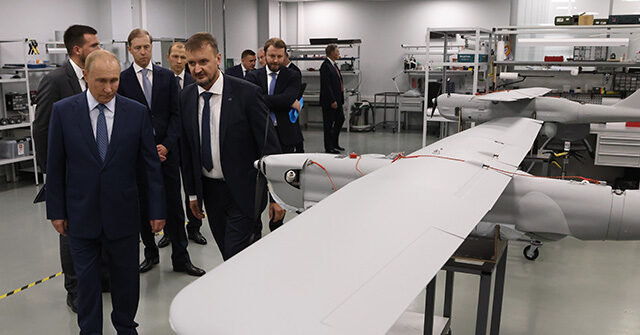The operation known as “Alabuga Start” has attracted substantial international scrutiny as it allegedly entices young African women to work in a Russian drone factory, ultimately leading to exploitation and enforced labor conditions akin to slavery. Initially positioned as an opportunity for promising young individuals from developing nations to participate in a high-tech work-study program, the reality that emerges from various investigative reports reveals a more sinister purpose tied to Russia’s military operations. Reportedly, the program draws recruits into the Alabuga Special Economic Zone (SEZ) in Tatarstan, where they are put to work manufacturing Iranian-designed Shahed-136 suicide drones, which play a critical role in Russia’s invasion of Ukraine.
The Alabuga SEZ was established in 2006 with the intent of attracting foreign investment in science and industry by providing extensive infrastructure, tax incentives, and customs benefits. Underlying this seemingly beneficial initiative is a strategic focus on generating military technology. As investigations unveiled, potential recruits were misled about the true nature of the work they would be doing. Instead of high-tech, conventional drone assembly, they discovered they were manufacturing UAVs designed for warfare, complicating the program’s ethical standing and raising alarms about human rights violations. In light of the situation, the U.S. Treasury imposed sanctions on the SEZ in April 2024 due to its involvement in the clandestine sale of Iranian unmanned aerial vehicles.
A detailed exposé by the Associated Press brought to light the coercive tactics employed to recruit young African women. Promises of lucrative pay, study opportunities, and even free air travel were made, but upon acceptance, recruits were met with harsh realities—long hours in oppressive working conditions, inadequate safety measures, and little to no adherence to labor rights. The hopes of securing a better future turned into a nightmare, where the women were subjected to hazardous materials without protective gear. Testimonies from affected women illustrated the deceptive nature of the program, with one participant referring to her recruitment as a “trap” that she deeply regrets.
Disturbingly, some reports suggest that the exploitation is partially predicated on biases regarding gender and race; it is claimed that young African women are perceived as more compliant than their male counterparts. This racial dynamic has manifested in segregated assembly lines and derogatory attitudes toward the workers. The Alabuga drone factory has gained notoriety for producing a variety of military drones, including advanced variants equipped with thermobaric warheads, amplifying the international concerns surrounding the program’s implications for global security and human rights.
In response to initial reporting from the Associated Press, several social media platforms took action against accounts targeting potential recruits for “Alabuga Start.” These accounts, often supported by social media influencers, utilized polished marketing techniques to portray an enticing picture of life in Tatarstan, with amateurish depictions of happy African women engaging in various activities. However, these campaigns were deceptive, hiding the grim realities of the arduous labor that awaited the new recruits in the drone factories. In fact, many were misinformed about the specifics of their work, thinking they were contributing to civilian drone assembly rather than military operations.
The silence from African governments regarding the Alabuga Start program is particularly disheartening. Reports indicate that many countries have not only failed to intervene but some have even attempted to strengthen diplomatic ties with Russian entities behind the program. While awareness of the ethical implications of the situation grows, signified by the partnerships signed with countries such as Sierra Leone and Zambia, African authorities appear to neglect the responsibility to protect their citizens. The International community, including figures like David Albright, underlines the complicity of African governments in enabling this exploitation, suggesting that their actions or, more pointedly, inaction, place them in a morally questionable light amid ongoing international crimes linked to the conflict in Ukraine. The interplay of economic opportunities with geopolitical ramifications continues to pose significant challenges in addressing the alleged violations associated with Alabuga Start.

